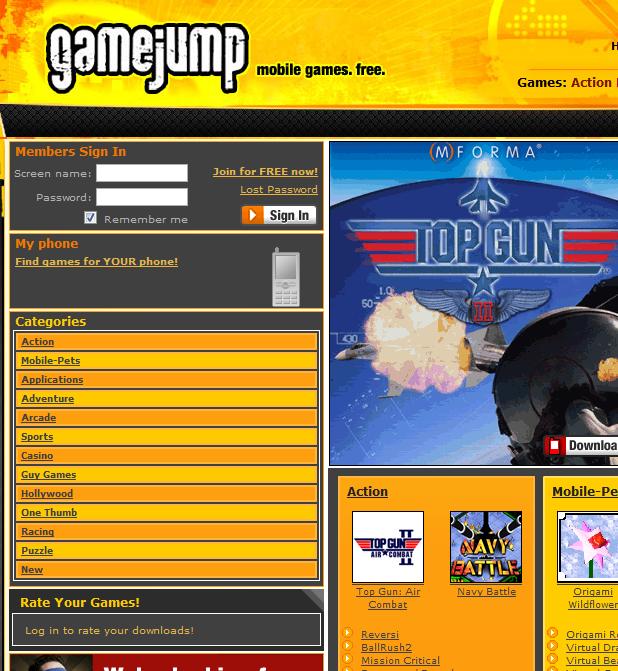Are advertising-funded mobile games really the future?
Free gaming sounds good, but are there catches?

Who do you trust more: Janet Jackson and Luther Vandross, or Lil' Jon and the East Side Boyz? See, Janet 'n' Luther claimed 'The Best Things In Life Are Free', yet Lil' Jon and chums disagreed, maintaining that 'Nothing's Free'. It's a quandary.
Admittedly, none of the above were thinking specifically about advertising-funded mobile games when they recorded those songs. At least, not as far as we know. Yet those two titles make an easy intro encapsulate the debate around ad-funded games that's currently happening in the mobile industry.
You can get ad-funded games right now, of course. There are two main US-based portals: Hovr and GameJump, both of which we've covered regularly on Pocket Gamer. Both distribute games for free, with adverts inserted into the loading screens to generate revenue for the sites and their publisher/developer partners.
Greystripe, the company behind GameJump, has been the most successful at tempting medium-to-large publishers, having signed up Vivendi Games Mobile last month and Hands-On Mobile in September. Hovr tends to focus more on smaller developers.
They're not the only ad-funded mobile firms, though. Others, like Amobee, are exploring a different business model, working with the mobile operators to insert ads into games sold on their portals. The company has run trials with Orange in France, and partnered last month with publisher Digital Chocolate.
So far, it's been smaller developers and publishers who've been keenest on the idea of ad-funded mobile games, mainly because sites like Hovr and GameJump offer a new distribution channel for their games – at a time when they're increasingly being squeezed out of the operator portals by the 900lb gorillas of the mobile gaming world (think EA Mobile, Gameloft and Glu).
For smaller firms, ad-funded sites are a gamble but one that, if it works, could bring in the revenues to keep them in business.
Larger companies don't see it that way, with many suspicious of any trend that may make gamers think mobile games are free. Their views have been bolstered by the poor quality of many of the first batch of titles to go live on the ad-funded portals.
However, announcements like Greystripe's deals with Hands-On and Vivendi show that attitude is changing, although these publishers aren't racing to distribute their latest games for free with ads in.
Hands-On's initial line-up includes older titles like Lego Bricks, World Poker Tour: 7 Card Stud, True Crime: Streets of LA, Call of Duty 2, Top Gun: Air Combat, Pro Bowling, and Sudoku Garden. Meanwhile, Vivendi is going with After Dark: Flying Toaster, Amy's Hangman, and a bunch of casual Garfield games.
It seems this will be the strategy for the larger publishers: they'll sell their games for £5 through the usual channels (operator portals, Jamster-style services, and their own websites), and only when their sales tail off will they be considered for ad-funded free distribution.
The key to success for sites like Hovr and GameJump is promoting as many high-quality games as possible, whether they come from big or small firms. See, the advertisers won't stump up big bucks according to the number of times a game is downloaded – they'll want to know how often it's been played (and thus, how many times their ads have been seen).
A rubbish game equals few plays, which is one of our reservations about current ad-funded gaming. When presented with a huge list of free games, the temptation is to download lots, install them on your phone, and then play them once or twice before getting bored. That's not great news for advertisers, the site owner or publishers/developers.
Still, expect to be hearing a lot more about ad-funded mobile games on Pocket Gamer in the coming months. The UK operators may finally launch their own offerings in partnership with firms like Amobee, while there are other ad-funded start-ups set to launch with their own innovative business models.
Are ad-funded games the future for the mobile games industry? No. But are they part of its future? Most certainly, yes.
